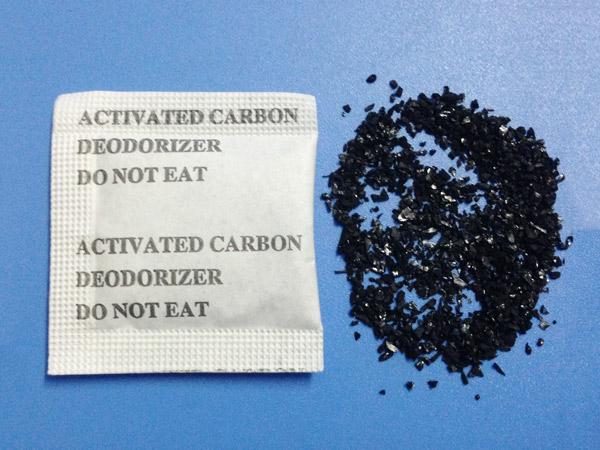Search: desiccant / deodorant / m-buster / Food desiccant
Consultation hotline
+86 0769-83514599
Coconut shell activated carbon is a kind of water purification material based on coconut shell. After grinding, polishing and screening, the appearance of coconut shell activated carbon is bright. Coconut shell activated carbon has good toughness, wear resistance, pressure resistance and super adsorption. It is also resistant to oil, does not agglomerate and is not easy to rot. Therefore, it is called pure natural filter material.
When transporting coconut shell activated carbon, avoid mixing with hard materials, avoid trampling, prevent crushing, so as not to affect the filtering effect and water quality; when storing coconut shell activated carbon, it is absolutely not allowed to soak in water. After soaking in water, water will enter the pores and lose its function. This should be noted. Coconut shell activated carbon should be avoided to contact with tar, because after tar enters the activated carbon bed, it is easy to block the gap of activated carbon, thus losing the adsorption effect. It is better to have a tar removal device to ensure the normal use of coconut shell activated carbon.
Coconut shell activated carbon shell is black particles with developed pore structure, large specific surface area and super adsorption capacity. The chemical property is stable and easy to regenerate. It is suitable for high purity drinking water treatment. It is also commonly used in some industrial water and wastewater treatment, mainly for dechlorination, decolorization and deodorization.

Coconut shell activated carbon belongs to the category of fruit shell activated carbon. Its main characteristics are low density, light handle and lighter than coal based activated carbon. For the same weight of activated carbon, the volume of coconut shell activated carbon is generally larger than that of coal based activated carbon.
Coconut shell activated carbon is generally in the form of broken particles and flakes, while the formed activated carbon, such as columnar and spherical activated carbon, is mostly coal based carbon. Coconut shell activated carbon has a small molecular pore structure. When activated carbon is put into water, when it adsorbs water molecules, the air emitted will produce many very small bubbles (visible to the naked eye), and these bubbles will float on the water surface with dense density. However, coal-based activated carbon generally has macromolecular pore structure, resulting in relatively large bubble phase.
Coconut shell activated carbon is widely used in various aspects of industrial and agricultural production. Such as alkali free deodorization (refined deodorization), ethylene desalting water (refined packing), catalyst carrier (such as palladium and platinum), water purification and petrochemical wastewater treatment. In the electric power industry, the water quality of power plant is treated and protected, the chemical catalyst and carrier gas in the chemical industry are purified, the solvent is recovered, the decolorization and oil refining are carried out. Refining and decolorization of beverage, wine, monosodium glutamate, mother liquor and food in food industry, and gold recovery in gold industry. Environmental protection industry coconut shell activated carbon wastewater treatment, waste gas treatment and harmful gas treatment, gas purification and related industries filtration, wood floor moisture-proof, gasoline evaporation pollution control.
Coconut shell activated carbon is used to prepare various impregnation solutions.
About YASHI
Company profile Equipment Honor Witness ApplicationProduct
Desiccant Food desiccant Environmental desiccant Silica gel desiccant More+News
News company Industry News FAQContact us
Feedback Recruitment Contact us
 scan
scan
 scan
scanService hotline:+86 0769-83514599 / +86 0769-83663597
Address:Huangjiang Park 2nd Road, Huangjiang Town, Dongguan City
Dongguan Huangjiang Yashi packing material factory Copyright Technical Support:【Dongguan Website】 【Admin】